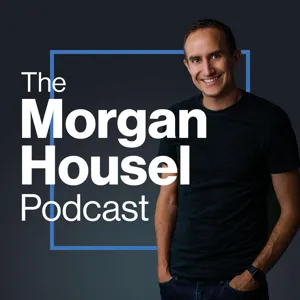Podcast Summary
The power of profound insights in brief quotes: Renowned individuals like Daniel Kahneman have shared profound insights in brief quotes, leaving a lasting impact on readers and listeners.
The power of profound insights can be found in brief quotes from wise individuals. The renowned psychologist Daniel Kahneman, who recently passed away, once shared this perspective during a dinner conversation when he stated, "People in their thirties know where the world is going because they're going to do it. I am in my eighties, so I have no idea." This quote, among many others, demonstrates the depth of knowledge and emotion that can be conveyed in a few words. Throughout his life, Kahneman, like many others, distilled complex ideas into brief sentences, leaving a lasting impact on those who read or heard them. The ability to distill complex ideas into concise quotes is a challenging yet rewarding skill, and these quotes can often provide more insight and inspiration than lengthy books or articles.
The Importance of Humility and Understanding for Success and Personal Growth: Recognize the value of humility, understanding, and others for success and personal growth. Intellectual capabilities should benefit mankind, avoid ignorance, respect all creeds, and recognize the importance of horses and momentum.
Humility and a deep understanding of the world around us are crucial for success and personal growth. Nobel laureate Darren Brown emphasized the importance of using our intellectual capabilities to benefit mankind, while Chris Rock reminded us that ignorance can be bliss. Chris Davis warned against trying to be someone's friend or parent at certain stages of their life. Harvey Firestone advised that if one's only motivation for business is to make money, they may be better off working for someone else. Albert Lasker emphasized the value of humility in recognizing good ideas. Charlie Munger cautioned against overlooking stupidity in other professional territories. Leroy Jolly highlighted the importance of recognizing the value of horses in horse racing, and Dee Hawk pointed out that we have an almost infinite capacity to believe things that are advantageous to us, regardless of their truth. Packie McCormack reminded us that momentum can make strengths seem greater and weaknesses more forgivable, while Robert Henry encouraged respect for all creeds and the truth they hold. Overall, these quotes emphasize the importance of humility, understanding, and recognizing the value of others and the world around us.
Staying innovative and adaptable for growth: Reflect on irritations, strive for balance, and embrace curiosity for continuous learning and growth.
Continuous growth, learning, and making oneself obsolete are key to both personal and professional success. Steve Jobs' impact at Apple illustrates the importance of staying innovative and adaptable, while the goal of being a good ancestor, as mentioned by Jonas Salk, emphasizes the long-term perspective. Reflecting on irritations in others can help us better understand ourselves. The world is filled with those who struggle to start making money and those who can't stop, highlighting the importance of finding a balance. Our memories often romanticize past experiences, and it's essential to strive for growth in the present. Bill Bryson's observation about life and extinction applies to businesses and investing, where fast growth can be more perilous than declining revenue. Lastly, while passionate love and success can be intoxicating, they are temporary. Embracing curiosity and continuous learning is a more sustainable approach to both personal and professional fulfillment.
Maintaining a Balanced Perspective: Self-Improvement vs External Validation, Optimism vs Skepticism: Strive for self-improvement and the dopamine boost, but avoid seeking excessive external validation. Maintain a balanced perspective between optimism and skepticism to navigate life and finance effectively.
It's important to approach life with a balanced perspective. Nat Friedman suggests that striving for self-improvement and the dopamine boost that comes with it is more beneficial than seeking external validation. Jensen Huang warns that having high expectations can lead to low resilience. Naval Ravikant advises being optimistic in general but skeptical in specific situations. Packie McCormack cautions against being overly pessimistic or gullible. The key is to maintain a healthy balance between optimism and skepticism. Additionally, McCormack reminds us that pessimists are not always the good guys. If you're looking for a new podcast, check out The Rundown by Public.com. It's a quick and informative financial news podcast that will keep you updated on the latest happenings in the stock market, global economy, and crypto world. Remember, maintaining a balanced perspective and staying informed are essential for navigating the complexities of life and finance.





